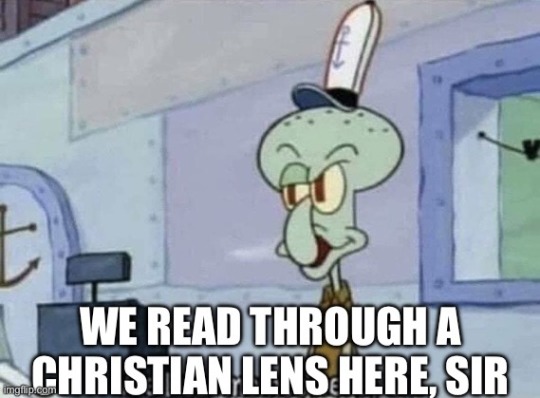#meta-blogging
Explore tagged Tumblr posts
Text
i'm just going to go ahead and make this its own post. when kirk teases spock he is SO GENTLE. "why mister spock are you feeling emotion?" and he lets spock do the vulcan equivalent of giggling and kicking his feet and going "haha nooo silly i'm a VULCAN i don't do that!!" and kirk's like "oh my apologies mister spock of COURSE not" and then they make consensual loving eyecontact with one another while smiling. when BONES senses blood in the water (spock having an emotion) he will grab spock by the scruff of his fucking neck and shake until dead. like a dog with a squirrel.
#personal#star trek blogging#tos lb#SPIRK#SPONES#in both instances this is romance btw.#liz's star trek stuff#liz writes meta
12K notes
·
View notes
Text
i honestly think the ghoul believes lucy is just full of shit until she gives him those vials. like he does not believe she is genuinely that good of a person because no one is that good of a person anymore, and because she is the product of vault-tec middle-management. he is constantly expecting her to show her "true colors" (hence "there you are, you little killer" after she bites off his finger) until that moment when she chooses to help him despite the fact that he's done nothing to deserve her kindness. COMPELS ME!!!!
#fallout#fallout tv#fallout prime#fallout meta#fallout spoilers#cooper howard#lucy maclean#vaultghoul#ghoulcy#bee.txt#posted this on an rp blog and it keeps getting likes so !!!#here fandom have a rebloggable version#(if you want it)
4K notes
·
View notes
Text
Can we, for a second, think about the fact that Hannibal dressed Will before he carried him home through the snow?
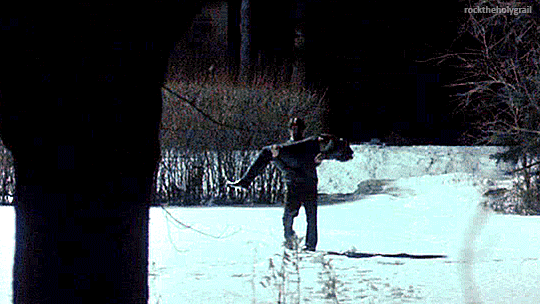
Will is naked when he's about to get the face surgery from Cordell. We see a scene of him in the operation chair where he's shirtless, lower body covered by a hospital blanket. Hannibal, who cut himself free from the ropes that were holding him captive on Muskrat farm, who then killed a large sum of Mason's staff including trained security and surgeons, saves him before Will's face gets removed. This all happens off-screen. The next scene is Hannibal carrying Will (bridal style) through the snow. In this scene Will is dressed, including a jacket for the cold and all that. Imagine Hannibal, the violent beast we saw when he killed Mason's men, blood probably still on his hands, finding Will there. Unconscious, and then dressing him. Dressing someone is a very intimate thing, especially someone unconscious. It requires care and gentleness. That, and knowing how to handle a body and loving someone enough to dress them while they don't need to be. He buttoned his buttons for him, tied his shoes, put him in a jacket to make sure he wouldn't get cold - I mean, Hannibal himself doesn't even wear a jacket in that scene. There's blood and wounds all over Hannibal's face, he's exhausted and probably the one in the most physical danger, yet he takes care of Will before he takes care of himself.
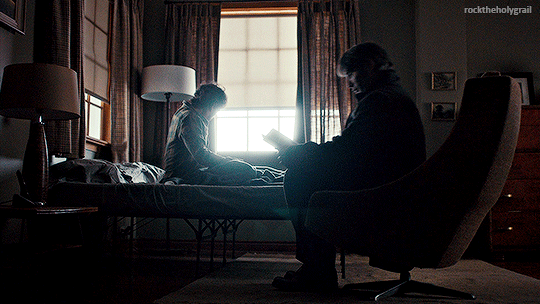
This hits even harder if you think about why they ended up in Muskrat farm in the first place. In Florence, Hannibal tried to 'eat' Will. He tried to split his head open with a bone saw. That intense violence, the grotesque and desperate nature of those actions makes a perfect and sharp contrast to him saving Will after outside forces try to take their lives, which is a heroically gentle and intimate action. He didn't have to dress him up like that, he didn't have to carry him that way, but he did. Hannibal fails to kill Will in Florence, and with that he fails his last attempt to get rid of his feelings for Will. Or at least, to make his feelings bearable. He thinks that he can control himself better when Will is dead, so he tries to kill him but he fails. Not because he's stopped, but simply because he can't do it. If Hannibal wanted him dead, Will would have been dead. Mason's men only interrupted his theatrics. They gave him a reason to put away the saw and act like it was purely their fault, but then Will is in danger at the farm and Hannibal does everything in his power to save him and get him home safe and well. At home he takes off his jacket, literally lays him in bed and tucks him in. He covers Will with a blanket, he tries to write mathematical formulas to reverse time and cleans his wounds. That's why Will's rejection when he wakes up is so tragic and hard to watch. It breaks Hannibal, unbreakable and inhuman Hannibal Lecter. It simply hurts him enough to break his heart. It breaks him enough to give up everything he ever lived for and surrender to the FBI, which he spent a lifetime running from. He does this because when he decided to save Will, he realised he would never get over the things he felt for him. In Hannibal's mind, the worst thing that can happen is never seeing Will again. He finally realised that, after everything, and that's why he surrenders to the FBI.
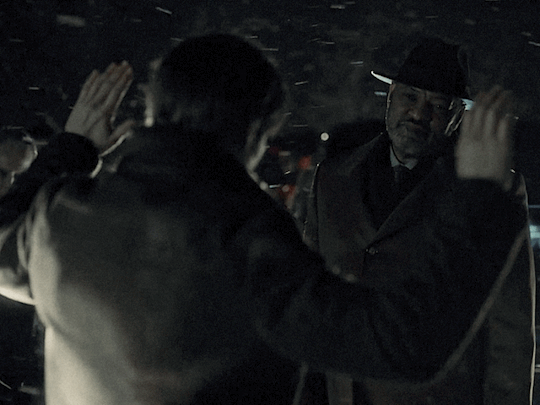
Hannibal honey, you don't want to eat his brain. You just wanted him to love you.
It's subtle details like this that always stick to me afterwards. It's just another thought I had and I felt like sharing.
#hannibal#nbc hannibal#thoughts#this is not supposed to become a Hannibal blog but I couldn't help posting about them again#hannigram#It's time to use the tag again!!!:#these tragic homos will be the death of me#will graham#hannibal analysis#analysis#hannibal season 3#3x07#digestivo#hannibal meta#meta
2K notes
·
View notes
Text
Some facts about Emmrich (and also the Necropolis, Nevarra and other related things) gathered from the banters
I went through all companion banters on DanaDuchy's channel after playing the game to write down all facts about companions/the world that I haven't seen brought up anywhere in the game as a writing reference (and for funsies).
Note: This list may not be exhaustive. I might have missed some something or didn't write it down because I considered it common knowledge. If you have anything to add, please DM me or send an ask! (do specify what banter the information is coming from, though)
Note 2: Posts from this series (mostly) don't include information from banters specific to quests or between companions and faction members. I plan to do another playthrough to capture more of those and will add any relevant info to the character posts.
Other characters' posts: Bellara, Davrin, Harding, Lucanis, Neve, Taash. I'm also planning a post about just the Lighthouse some time later
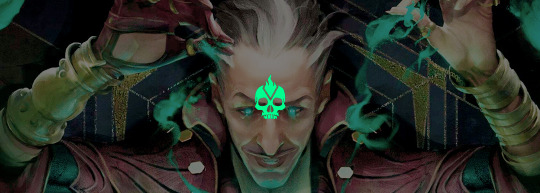
About Emmrich:
Family and early life:
“Volkarin” is a commoner’s name. Emmrich’s father was a butcher, and his mother was a cook
When Emmrich was around 5 years old, his neighbours had a pig named Lucy. He was very fond of her, and she’d always let him hug her around his neck
Emmrich grew up poor (clocked by Neve based on the way he always saves his candle stubs, shows up first for meals and never leaves food on his plate)
Emmrich grew up hearing that all dragons were so hostile they had to be slain and is surprised that Taash has found ways to deal with them peacefully
General:
The gold Emmrich’ wears is called “grave-dowry” (or “grave gold”). It’s a Nevarran custom to wear precious objects one would like to take to their grave
Emmrich’s bracelet (not specified which one) was gifted to him on the day he became a full Watcher. The ring with a large stone was the last gift from his father. The skull pin doesn’t have a story, he just likes it
Emmrich isn’t fond of the Nevarran nobility
Emmrich’s shaving cream smells like potash (at least to Taash)
Emmrich uses moss perfume with flowers
Decades ago, Emmrich used to see an Orlesian woman who was an art appraiser
If Emmrich wasn’t a watcher, he would like to be a botanist
Emmrich displays some interest in Ferelden, mentioning that many of its heroes greatly shaped the history. Harding says that’s the nicest thing anyone has ever said about her homeland
Emmrich doesn't like beer because it's bitter
Emmrich prefers tea (he mentions purchasing a Brynnlaw curled-leaf blend in Nevarra), but he can also drink coffee
Emmrich doesn’t eat meat (seafood and insects included), but he indulges in cheese. It seems to be a Watcher thing - he says that each Watcher must decide what they will and won't take a life for, and meat crosses that line for him
Emmrich likes melons, mushrooms and pineapples. He also enjoyed a plate of fried leeks and potatoes at Halos’s stand in Minrathous
Emmrich always thought he’d get married one day
After a Minrathous merchant sells Emmrich fake charms, he causes him to see skeletal faces on the windows and hear spirits whispering that false goods endanger lives as punishment. Emmrich agrees to stop once Neve tells him that she can convince the merchant to get back to selling linen if the visions cease
On magic and studies:
Some deaths may leave emotional imprints so intense Emmrich may feel them decades later
Emmrich thinks the magic of old Elven artefacts is “rigid”
Emmrich isn’t very good at figuring out Elven artefacts (by his own admission)
Emmrich’s first published work was A Monograph on the Vagaries of Determining a Body's Time of Death
Emmrich is roughly familiar with the dragon anatomy
Emmrich knows a lot about how bodies work (muscle-wise etc.) from the time he performed autopsies
Watchers study the death practices of other cultures. Emmrich knew about Eb-ketarra and the Rivaini traditions even before Taash performs them at the end of their questline
On life in the Necropolis:
When Emmrich fell for another boy during his youth, he showed him a corpse he was allowed to practice dissection on. The date was ruined by a passing wisp possessing the body and causing it to sit up and ruin the mood
Emmrich tutored Dorian during his term in the Necropolis (“Tremendous potential, but appallingly flippant towards the dead”)
Emmrich and other watchers live in the Necropolis (Emmrich has a flat there)
On life at the Lighthouse:
It took 8 skeletons half a day to bring that slab of marble into Emmrich’s room
He didn’t bring his entire collection of books to the Lighthouse (there are more)
Emmrich talks to skulls in his room
Lighthouse kitchen reminds Emmrich of the mortuary
Relationships with companions:
Emmrich offers to introduce Bellara to Audric, the Necropolis librarian (who appeared in Tevinter Nights’ Down Among the Dead Men)
Emmrich calls the Archive spirit a work of art
Emmrich and Davrin disagree on parenting methods. Emmrich thinks Davrin should better discipline Assan and teach him boundaries, while Davrin suggest Emmrich should let Manfred learn more on his own (e.g. let him fall so he learns how to get up)
Emmrich turns to Neve when he needs help acquiring some reagents he can't get his hands through normal ones, and she agrees to help him out (smuggling is involved)
Emmrich isn’t too thrilled about Neve taking over the Threads, questioning of what’s going to become with the organisation and the future and thinking it may become corrupt (sort of mirroring the way Neve is apprehensive about his lichdom)
Taash likes Emmrich’s lich helmet. They are not usually fond of skulls, but that helmet is fine because it’s on fire
Taash thinks that gemstones like amethyst or green opal would look good with the lich helmet
Emmrich doesn’t seem to like unrealistic books as he criticised Harding’s “Gore-Knight” novels for their incorrect interpretation of magic. He is worried about people misunderstanding magic and spirits
Emmrich calls himself Harding's 'de facto physician'
On Manfred:
(If Rook chooses to save Treviso) Manfred brings Neve tea by his own volition. Emmrich thinks it's because Manfred sensed she might need a friend
Manfred is as aware of his surroundings as most people (to a certain degree)
(If revived at the Necropolis) Manfred learns to say Emmrich’s name
(If revived at the Necropolis) Manfred becomes much more talkative
Manfred likes boiling tea because he is fascinated by steam
Emmrich suggests Manfred tries tending to plants in Harding's garden
Manfred is curious about Spite and wanders into Lucanis’s room at night
Spite and Assan miss Manfred if he’s gone
On Lichdom:
Emmrich smells fine to Taash even after he becomes a lich
Emmrich’s lich helmet burns with veilfire. He once tried using it in combat, but the flame ended up blinding him
Emmrich thinks Strife would no longer be interested in a relationship after he becomes a Lich. That doesn't prove to be true
Lich!Emmrich doesn't need to eat but still comes by the kitchen for company
The energy of Emmrich’s magic changed after he became a lich
Other liches call lich!Emmrich “Young Volkarin”
Lich!Emmrich no longer has muscles, but when he tries out Taash’s pull-up routine, he can still feel something like “a spectral memory of flesh”, as if he had pulled a tendon
Emmrich starts seeing more books in the Lighthouse library after becoming a linch
About spirit, demons, and the Necropolis:
There are spirits of Temperance and Diligence
The Watchers avoid using the word “demon” because it creates bad expectations and can negatively influence spirits
Some in the Mourn Watch suspected that elves originated from spirits, though it was just one of many theories, and not a particularly popular one
Chambers in the Necropolis can go missing (according to MW!Rook, they turn up, eventually)
Even after the despair demon is banished from the Necropolis, the halls remain cold. However, the effects will abate with time
There are horses on display in the Necropolis
Watchers rarely get possessed thanks to the special wards of the Necropolis. Possessions also don’t happen as often because the necromancers already provide spirits with bodies, so they don't need to possess anyone by force
Bellara calls the background magic of Necropolis tidy and quiet
There something called “The Deep Necropolis” featuring sections like “The Unspoken Valley” and “The Charnel Bridge” (which has something called “nightmare fog”) that hosts all kinds of entities. Bellara is very excited to visit once the nightmare fog clears
Vorgoth ensures that the transgressions of those who use magical to cruel and abusive means will not be tolerated (whatever that means)
About Nevarra:
Many great Nevarran artefacts have been lost to time, including the Skull of Sabinar, the Key of Dead Dreamers, and the Crown of the Moon
There are strict rules about selling enchantments in Nevarra. You can’t sell anything without a licence and an inspection from the mage Circles
A Tevinter poem “Faustina's Song”, a romantic epic from the Steel Age, is very popular in Nevarra, and its quotes are used on ‘more than one’ epitaph in the Necropolis. Neve is surprised people even read it outside Tevinter
Pineapples don’t grow in Nevarra
#dragon age the veilguard#dragon age#veilguard spoilers#emmrich volkarin#manfred#neve gallus#taash#lace harding#datv banters#meta#references#flowers.txt#mourn watch#flowers blogs
1K notes
·
View notes
Text

please understand my vision of meta knight and bayonetta (brawl and wiiu champs) being doubles partners now
original
#my art#meta knight#bayonetta#super smash bros#for blog organization i will also tag#bayometa#but you can ignore that if you like lol
2K notes
·
View notes
Text
as much as I love the common "Tim worships/stalks Jason" trope in TimJay fanfiction because it's Good and making Tim a weird little freak is Fun, I think the underutilized dynamic is where Jason is the one weirdly obsessed with Tim and makes it Tim's problem.
Like, the moment Jason is confronted with the information that a third Robin exists, the first thing he does is cover his wall with pictures of Tim so he can just obsess and torture himself over it. That is the behavior of a man who is Unwell over Tim's existence and I love it.

red hood: lost days #4
And as much as a shitshow as The Titans Tower Incident™ is characterization-wise (though I think it has far more merit in depicting Jason's character than people give it credit for but I digress-) there's something very fun about the fact that even after kicking his ass, Jason respects Tim and is impressed by him.

teen titans (2003) #29
And on top of that, Jason can't seem to stop trying to ask Jason to Tim to work with him in some capacity.


robin (1993) #177



batman: battle for the cowl #2
While Battle for the Cowl is an exceptionally bad comic, especially for its characterization of Jason and the "be my Robin" bit is taken deeply out of context, I do think it's interesting how obsessed Jason is with believing that Tim is extremely competent, only held back by being "brainwashed by Bruce". (hence him leaving Tim for dead later on in the comic.) Jason seeing a darker side of Tim and wanting to bring that out of Tim, wanting to see what Tim could be if he let go of his loyalty to Bruce is so fun to me, tbh.
And in Robin #177, Jason seems genuinely upset Tim doesn't want to work with him. Jason sees such a raw potential in Tim and is obsessed with it, constantly wanting Tim to work for him and see Tim be the type of person Jason is. And despite Tim rejecting him, Jason doesn't shoot to kill Tim. I just cannot get over the fanfic potential of Jason obsessing over Tim, tracking him and seeing what he's capable of and what he could be capable of. Wanting to make Tim see things the way he does. To Tim it's corruption, to Jason it's freedom. Tim trying to 'save' Jason is fun and all, but Jason trying to corrupt Tim? That's even more fun to me. Watching that power struggle between them, Tim unable to get Jason off his heels as Jason gets more and more possessive and bold with each attempt.
And when Jason sees Tim successfully get Gotham back under control after a gang war, he's impressed. He praises Tim, even. And then Tim just. Breaks him out of prison.

robin (1993) #182
The way they're constantly trying to see something in the other that isn't there, hoping the other will come around? That is the most fucked up hate/love dynamic ever. Jason keeps coming back to Tim, keeps trying to find ways to get Tim onto his side. They're always chasing each other. And I think Jason would be the one to confess love first, the one to do anything to make Tim his. And when you consider after all of this, Tim has his Red Robin arc and is at his lowest, getting the closest he ever gets to considering murder? I think it'd be so fun to see Jason take advantage of that and worm his way back into Tim's life and finally push Tim over the edge.
#jaytim#timjay#tim drake x jason todd#jason todd x tim drake#batcest#necrotic festerings#for the record i could've continued showing examples if i delved into the new-52#but this is meant to be entirely a pre-flashpoint meta analysis of their dynamic#but in the new-52 jason explicitly says tim is the only member of the batfam he likes and they work together regularly#but new-52 also ate ass with tim's characterization so i cannot use it in good faith on this post.#my first tumblr meta on this blog and i'm feeling stressed about putting my thoughts in the open won't lie#one day i'll come back to the titans tower incident and expand on my thoughts on why it's not as bad as ppl make it out to be#dare i say. it's mostly in character for jason minus the ridiculous robin suit and some of his grandstanding#but that debate is for another day#fyi anyone can take this stuff as a prompt/inspo and run with it for fic pls go wild#someday i'll probably write my own take on it too
2K notes
·
View notes
Text
Shadowbringers is a ghost story, it's a love story, it's a post-apocalyptic horror story, it's a high fantasy that turns the genre's notions of light and dark and hero and villain inside-out and upside-down. Fitting with the whole light and dark schema it's FF14's writing at it's darkest and edgiest, and most optimistic and hopeful at the same time. It's about the struggle of finding and protecting whatever hope you can in the most painful of situations, about how even the strongest of us have to rely on one another, and it's an allegory about healing from grief and trauma on a grand scale. It's about choosing an imperfect present, a broken world, over a false promise of a utopian past.
Most importantly it's a story about the universal human experience of trying to kill evil angels while being lied to by wizards who are weirdly obsessed with you.
2K notes
·
View notes
Text
It's always been intriguing to me that, even when Elizabeth hates Darcy and thinks he's genuinely a monstrous, predatory human being, she does not ever perceive him as sexually predatory. In fact, literally no one in the novel suggests or believes he is sexually dangerous at any point. There's not the slightest hint of that as a factor in the rumors surrounding him, even though eighteenth-century fiction writers very often linked masculine villainy to a possibility of sexual predation in the subtext or just text*. Austen herself does this over and over when it comes to the true villains of her novels.
Even as a supposed villain, though, Darcy is broadly understood to be predatory and callous towards men who are weaker than him in status, power, and personality—with no real hint of sexual threat about it at all (certainly none towards women). Darcy's "villainy" is overwhelmingly about abusing his socioeconomic power over other men, like Wickham and Bingley. This can have secondhand effects on women's lives, but as collateral damage. Nobody thinks he's targeting women.
In addition, Elizabeth's interpretations of Darcy in the first half of the book tend to involve associating him with relatively prestigious women by contrast to the men in his life (he's seen as extremely dissimilar from his male friends and, as a villain, from his father). So Elizabeth understands Darcy-as-villain not in terms of the popular, often very sexualized images of masculine villainy at the time, but in terms of rich women she personally despises like Caroline Bingley and Lady Catherine de Bourgh (and even Georgiana Darcy; Elizabeth assumes a lot about Georgiana in service of her hatred of Darcy before ever meeting her).
The only people in Elizabeth's own community who side with Darcy at this time are, interestingly, both women, and likely the highest-status unmarried women in her community: Charlotte Lucas and Jane Bennet. Both have some temperamental affinities with Darcy, and while it's not clear if he recognizes this, he quietly approves of them without even knowing they've been sticking up for him behind the scenes.
This concept of Darcy-as-villain is not just Elizabeth's, either. Darcy is never seen by anyone as a sexual threat no matter how "bad" he's supposed to be. No one is concerned about any danger he might pose to their daughters or sisters. Kitty is afraid of him, but because she's easily intimidated rather than any sense of actual peril. Even another man, Mr Bennet, seems genuinely surprised to discover late in the novel that Darcy experiences attraction to anything other than his own ego.
I was thinking about this because of how often the concept of Darcy as an anti-hero before Elizabeth "fixes him" seems caught up in a hypermasculine, sexually dangerous, bad boy image of him that even people who actively hate him in the novel never subscribe to or remotely imply. Wickham doesn't suggest anything of the kind, Elizabeth doesn't, the various gossips of Meryton don't, Mr Bennet and the Gardiners don't, nobody does. If anything, he's perceived as cold and sexless.
Wickham in particular defines Darcy's villainy in opposition to the patriarchal ideal his father represented. Wickham's version of their history works to link Darcy to Lady Anne, Lady Catherine (primarily), and Georgiana rather than any kind of masculine sexuality. This version of Darcy is a villain who colludes with unsympathetic high-status women to harm men of less power than themselves, but villain!Darcy poses no direct threat to women of any kind.
It's always seemed to me that there's a very strong tendency among fans and academics to frame Darcy as this ultra-gendered figure with some kind of sexual menace going on, textually or subtextually. He's so often understood entirely in terms of masculinity and sexual desire, with his flaws closely tied to both (whether those flaws are his real ones, exaggerated, or entirely manufactured). Yet that doesn't seem to be his vibe to other characters in the story. There's a level at which he does not register to other characters as highly masculine in his affiliations, highly sexual, or in general as at all unsafe** to be around, even when they think he's a monster. And I kind of feel like this makes the revelations of his actual decency all along and his full-on heroism later easier to accept in the end.
------------
*The incompetently awful villain(?) in Sanditon, for instance, imagines himself another Lovelace (a reference to the famous rapist-villain of Samuel Richardson's Clarissa). Evelina's sheltered education and lack of protectors makes her vulnerable to sexual exploitation in Frances Burney's Evelina, though she ultimately manages to avoid it. There's frequently an element of sexual predation in Gothic novels even of very different kinds (e.g. Ann Radcliffe's The Mysteries of Udolpho and Matthew Lewis's The Monk both lean into this, in their wildly dissimilar styles). William Godwin's novel Caleb Williams, a book mostly about the destructive evils of class hierarchies and landowning classes specifically, depicts the mutual obsession of the genteel villain Falkland and working class hero Caleb in notoriously homoerotic terms (Godwin himself added a preface in 1832 saying, "Falkland was my Bluebeard, who had perpetrated atrocious crimes ... Caleb Williams was the wife"). This list could go on for a very long time.
**Darcy is also not usually perceived by other characters as a particularly sexual, highly masculine person in a safe way, either, even once his true character is known. Elizabeth emphasizes the resilience of Darcy's love for her more than the passionate intensity they both evidently feel; in the later book, she does sometimes makes assumptions about his true feelings or intentions based on his gender, but these assumptions are pretty much invariably shown to be wrong. In general the cast is completely oblivious to the attraction he does feel; even Charlotte, who wonders about something in that quarter, ends up doubting her own suspicions and wonders if he's just very absent-minded.
The novel emphasizes that he is physically attractive, but it goes to pains to distinguish this from Wickham's sex appeal or the charisma of a Bingley or Fitzwilliam. Mr Bennet (as mentioned above) seems to have assumed Darcy is functionally asexual, insofar as he has a concept of that. Most of the fandom-beloved moments in which Darcy is framed as highly sexual, or where he himself is sexualized for the audience, are very significantly changed in adaptation or just invented altogether for the adaptations they appear in. Darcy watching Elizabeth after his bath in the 1995 is invented for that version, him snapping at Elizabeth in their debates out of UST is a persistent change from his smiling banter with her in the book, the fencing to purge his feelings is invented, the pond swim/wet shirt is invented. In the 2005 P&P, the instant reaction to Elizabeth is invented, the hand flex of repressed passion is invented, the Netherfield Ball dance as anything but an exercise in mutual frustration is invented, the near-kiss after the proposal in invented, etc. And in those as well, he's never presented as sexually predatory, not even as a "villain."
#self-indulgently long tangents even for me but i had Thoughts!#i almost appended a third footnote to the second footnote. rip#anghraine babbles#long post#fitzwilliam darcy#lady anne blogging#austen blogging#austen fanwank#ivory tower blogging#anghraine's meta#eighteenth century blogging#gender blogging#i do think it's interesting that associating his flaws with lady catherine's is honestly fair - she comes to wonder about this later#but lbr that is totally understandable! lady catherine is the awful parody version of him!#but the times when elizabeth's assumptions are highly inflected by Yes All Men Actually generalizations she's utterly wrong#it's not some horrible misdeed but it's not really fair#not because she's oppressing him (lmao) but because people don't work that way#not saying that p&p is some huge blow against gender essentialism but i do think it's FAR less friendly to it than its fans are
1K notes
·
View notes
Text

From: @das-a-kirby-blog
To: @humming-fly
#das-a-kirby-blog#humming-fly#dark meta knight#meta knight#galacta knight#morpho knight#hnk secret santa
460 notes
·
View notes
Text
i don't have coherent thoughts about it much less words but god just. kristen applebees realizes she's being attacked from within by kalina, and what does she do? her girlfriend just disappeared, she and riz are on their own, they haven't found the last ingredient they need to make the tincture to heal the shadow cat plague, and said plague is now manifesting enough to kill kristen from the inside, and kristen...doesn't save herself. she casts her one greater restoration on riz. she trusts her friend. kristen "crisis of faith" applebees, who spends the entire first half of high school with no idea what she believes in, finds herself dying from an unseen assailant and chooses, without a second's hesitation, to put her faith - and her life - in the hands of her friends. because sure, kristen may be a devout young woman, but she knows better than most that gods are just people with tremendous power. and you know what? her friends are people with tremendous power, too. and they care about her without exception, without doubt. so when the chips are down, kristen believes in her friends. not knowing how they'll come through, but always knowing that they will.
#just don't fucking text okay#kristen applebees#fantasy high#fantasy high sophomore year#fhsy#kristen casting greater restoration on riz KNOWING she can only cast it once and in all likelihood won't have the chance to long rest-#-before the shadow cat fucking kills her from within. and just doing it anyway. just putting blind faith in riz and in her friends. i#i just#dimension 20#d20#dropout#ally beardsley#stuff#fantasy high meta#everyone look away im blogging emotionally#i havent even watched junior year yet so i need nobody to say any spoilers okay#i just needed to get this out
466 notes
·
View notes
Text
Sometimes I wonder what Jiang Cheng could've become if his parents didn't instill a mix of "crippling fear of failure" and "impossibly high standards" in him. Cuz like, his dad was holding him to the vague standard of being as good as wwx, his mom yelling at him whenever he goofed around like wwx, and then both of them expressed disappointment when he's less successful than wwx. The thing both of them seem to ignore though is that wwx got where he is entirely because he had the freedom to fuck around and find out- he trained tirelessly because he made training fun for himself, he was innovative as a cultivators because he experimented and persisted through failures, and he was able to act in line with the Jiang clan moto because his actions had less political pull than members of the main family. Jiang Cheng on the other hand- if he fucked around he got told to "stop stooping to the level of servants." If his achievements were lesser than wwx's, he got either dismissed by his dad or yelled at by his mom to try harder. And if he picked fights with the Wens, they'd have an excuse to destroy his clan. Like ya- no shit that'd create an adult who's terrified of failure.
The kite game serves as such a good metaphor/embodiment of this set back- with Jiang Cheng never being able to shoot as far as Wei Wuxian because he pulls back and shoots closer the second he misses.
And its sad too because he's shown to be pretty brilliant when he's in "fuck it, we ball" mode. Like, when he's not freezing up, he manages to pull off things like rebuilding his entire clan from the ground up, leading armies and taking back territories from the Wens, and I'm fairly sure he's the only character we see counter the Lan music cultivation techniques (feel free to correct me if I'm wrong on that last one. Also feel free to add any of the other cool shit he did that I'm blanking on at the moment, cuz I know I'm forgetting something).
That being said- even with his anxiety, he's still one of the top cultivators. Imagine what a force of nature he'd be if he could sustain "fuck it we ball" mode
#jiang cheng#jiang fengmian critical#madam yu critical#jiang cheng positive#<- there. its tagged properly so you better not @ me antis#mdzs meta#mdzs#long post#jiang cheng would've been too powerful so his parents decided to nerf him#unfortunate i had this thought around the same time as the discourse is happening and I'm probably inviting trouble with this but eh-#maybe I'll get lucky and the antis will leave me alone#I'm being critical of Madam Yu here but this is NOT a Madam Yu hate blog#I will block depending on how far “criticism” of her goes#apparently I need to add in this edit too- THIS IS NOT A WWX BASHING POST. I WILL BE DELETING ANY COMMENTS WITH WWX BASHING IN THEM
901 notes
·
View notes
Text
Some facts about Lucanis (and also Spite and the Crows) gathered from the banters
I went through all companion banters on DanaDuchy's channel after playing the game to write down all facts about companions/the world that I haven't seen brought up anywhere in the game as a writing reference (and for funsies).
Note: This list may not be exhaustive. I might have missed some something or didn't write it down because I considered it common knowledge. If you have anything to add, please DM me or send an ask! (do specify what banter the information is coming from, though)
Note 2: Posts from this series (mostly) don't include information from banters specific to quests or between companions and faction members. I plan to do another playthrough to capture more of those and will add any relevant info to the character posts.
Other characters' posts: Bellara, Davrin, Harding, Emmrich, Neve, Taash. I'm also planning a post about just the Lighthouse some time later
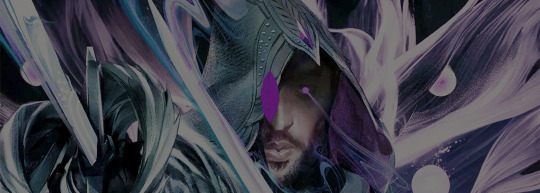
About Lucanis:
Family and the past:
Lucanis learnt to cook while helping the kitchen staff at the villa when he was a little boy. One of his motivations was learning how to make churros
Side note: Lucanis mentions that cioccolata calda was his favourite drink when he was a baby, and he serves churros to a romanced Rook who picks cioccolata calda as their favourite drink. It’s all coming together!
Lucanis wanted to be a Crow when he was a child (at least most of the time)
All of Lucanis's relatives were Crows as well, and all of them were killed by a rival Crow house
Lucanis says Caterina would be proud of Illario hiding his plans well, as well as killing her
Lucanis says that the hard part about setting Illario free would be convincing Caterina
Lucanis says that nightlife was more of Illario's thing, and he never got out as much
On Crows and Antiva:
Viago still stares daggers at Lucanis for throwing his (Viago's) pet snake out of the window in a dream
Lucanis doesn't like it when people confuse murder and assassination ("Murderers are hobbyists, we are professionals")
Lucanis has taken contracts in Orlais
Lucanis doesn’t know Treviso as well as he once used to
Heir didn’t train Lucanis
Lucanis says he has never killed an innocent “by his count” (other people may disagree)
Lucanis doesn’t think of the Crows as a “big organisation” (unlike the Inquisition) because they stab each other too much
Lucanis became a mage-killer at Caterina’s behest (she wanted to tap into new markets)
The nickname “The Demon of Vyrantium” came from Tevinter news-sheets, though Lucanis thinks Viago started it
Lucanis says that there aren't any special tricks to killing mages. Though, if nothing else works, you can try pissing them off, as that could attract a demon that would eat the mage
Lucanis once killed half a dozen venatori while stuck inside an elevator
Lucanis doesn’t consider himself a gentleman assassin, manners are less important than getting the job done
Lucanis sometimes spares his targets. He mentioned letting go of a servant who killed her master, as well as a 14-year-old boy. He thinks it’s wrong to kill people so young because they still have time to change
Lucanis doesn’t accept contracts without merit, and the merit is decided by the talon of the house
General:
Lucanis can make bread
Lucanis has never been to Ferelden
Lucanis isn’t interested in killing wyverns, just looking at them :)
Lucanis has a pet snake
Lucanis stays awake at night by cleaning his gear, exercising, studying Orlesian and knitting ("it’s just another kind of blade work")
Lucanis doesn’t understand a lot of things people find attractive
(In a conversation with Harding) Thinking about cooking was one of the things that helped Lucanis stay sane in the Ossuary (the other was thinking about killing his enemies)
(In a conversation with Davrin) Lucanis survived the Ossuary by shutting down and not thinking about anything except escaping
These two points sort of contradict each other. Either an inconsistency or Lucanis describing his experience differently to different people.
The Wetlands ruined at least one pair of Lucanis’s boots
(If Rook chooses to save Treviso) Lucanis offers to pay for any supplies the Shadow Dragons may need
Lucanis doesn't get a better bed because he's afraid of accidentally falling asleep
Lucanis can identify the killer’s weapon and the height difference between them and the target just through the blood splatter left at the scene
Lucanis considers Grey Wardens dangerous
Lucanis doesn’t like necromancy, because bringing people back to life is a waste of hard work
Lucanis finds the ice coffee from Minrathous offensive (Harding describes it as “snow, but made of coffee, sweet, and with cream and toffee sauce on top”)
Lucanis had never been in a romantic relationship before Rook/Neve
Relationships with other companions:
Lucanis gets into reading Bellara’s serials (very passionately - they chat about it a bunch)
Lucanis is outraged that the Veil Jumpers don’t get paid for their work and offers Bellara his contract negotiator
Lucanis made biscuits for Assan
Lucanis is sceptical that the griffons will be safe with the Wardens
Lucanis think that Assan shouldn’t go soft (referring to the time he took care of a halla) because he is a predator at heart
(If Emmrich becomes a lich) Lucanis offers to hold a funeral for Manfred
Lucanis and Harding talk a lot about dreams (mostly silly things like showing up naked for the job, getting chased by someone/something etc.)
Lucanis thinks Harding is deadly with her bow
Lucanis offers to pay Harding for being his lookout/aide at the rate of 6000 gold per contract
Lucanis offers the help of his contract negotiator to Neve after he finds out she doesn't have one
Lucanis made deep-fried peppers for Taash
About Spite:
Emmrich can hear Spite even when he doesn’t take over Lucanis’s body (at least from a close distance)
Spite is impartial to Emmrich, believing him more than Lucanis
Emmrich says it’s impossible to separate Spite and Lucanis without killing them
Emmrich encourages Lucanis to read to Spite to bring them closer. Lucanis agrees to let Spite pick a book
(If Emmrich becomes a lich) Spite asks if he and Lucanis can get rid of their skin too
(If Manfred is revived at the Necropolis) Spite asks Emmrich to teach him how to use fire magic. Lucanis isn’t thrilled by the idea
Emmrich sets up wards to prevent Spite from leaving the room when Lucanis is asleep
Spite no longer sleepwalks after “Inner Demons” because he apparently understood the concept of space
By the end of the game, Spite has agreed to stop sleepwalking completely
Spite controls the wings (confirmed in banter with Harding)
Spite wants to try swinging off the astrolabe at the Lighthouse
Spite is very excited about Manfred having hands and feet (Curiosity. Has. Feet!)
Spite finds the wisps in Neve’s room unnerving (as do Lucanis and Neve)
Spite likes to play with whetstones Bellara got for Lucanis (Bellara got them from the Irelin who supposedly got them from somewhere in Arlathan)
Spite wants to try eating self-lightning candles at Blackthorne Manor
About the Crows:
Crows frequently visit Nevarra and have received 20 contacts to assassinate the king. The King has been poisoned 7 times
Crows get a lot of contracts for Divine Victoria
Some seers in Rivain are powerful enough that there are contracts on them as well
Caterina once killed a man with a thimble
When Crows kill someone, most of the time they want others to know it was them (rather than presenting the death as an accident)
The crows buried six different Eight Talons and rarely take contracts in Ferelden after the Zevran fiasco
#dragon age the veilguard#dragon age#veilguard spoilers#lucanis dellamorte#neve gallus#caterina dellamorte#emmrich volkarin#spite#lace harding#datv banters#meta#references#flowers.txt#flowers blogs
1K notes
·
View notes
Text
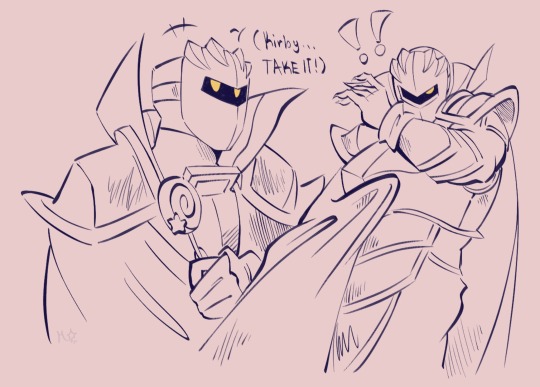
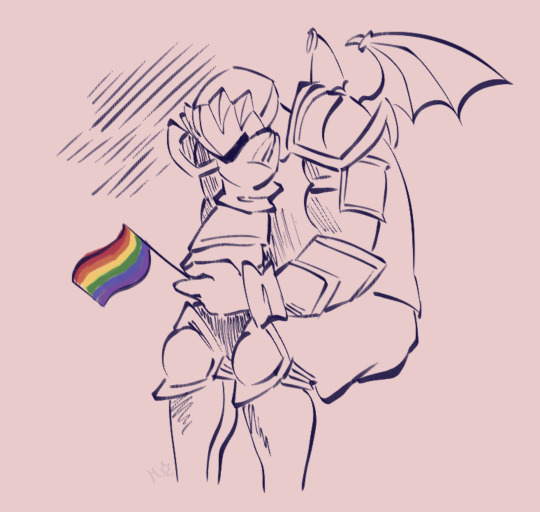

good day to draw meta knight gijinka
#meta knight#kirby#kirby gijinka#my art#i think im so hilarious#this is quite noticeable but i had to manually edit the background of the tiktok pic to get rid of the dude in the pic#idk if i did a good job#oh and yes i love to believe in the transmasc mk#ALSO ALSO i literally drew these for this one person who just joined tumblr and followed me and they said they'll stalk my blog for more mk#a0v1dp3dr0 you seem silly ily
1K notes
·
View notes
Text
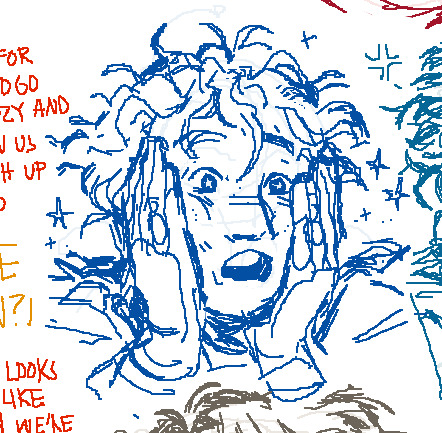
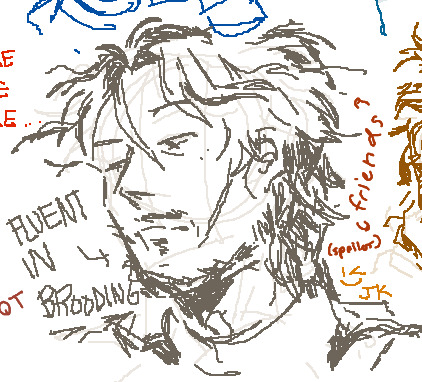
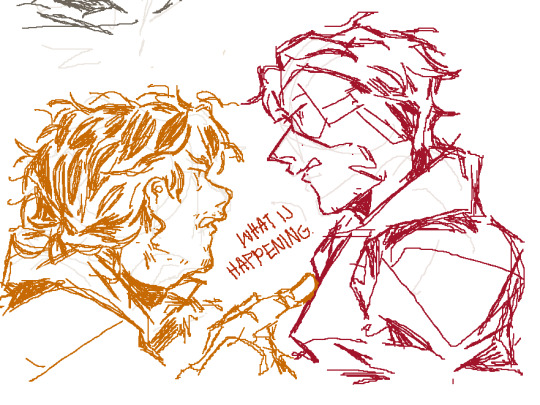
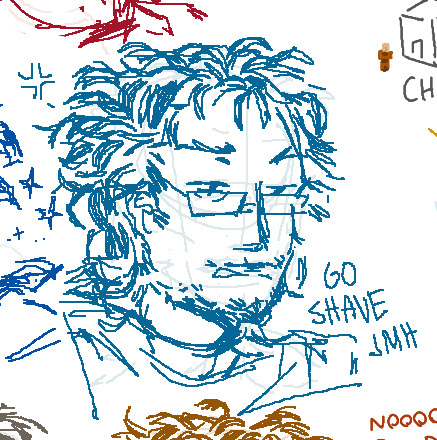

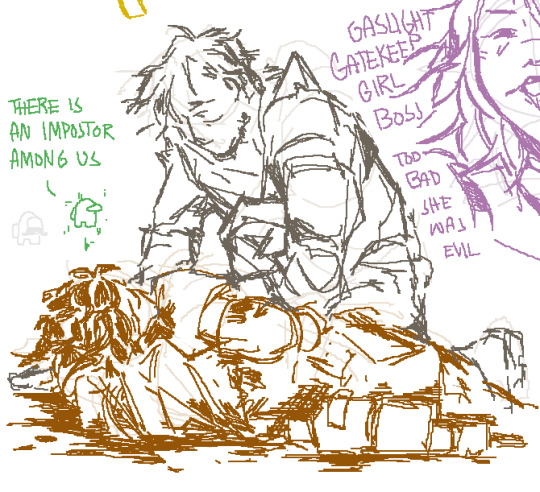





my friend has been trying to get me to watch rvb for almost ten years. you'll never guess who finally caved


#rvb#red vs blue#rvb fanart#roosterteeth#michael j caboose#agent washington#leonard church#dexter grif#richard simmons#grimmons#agent york#agent tex#kaikaina grif#agent south dakota#frank dufresne#rvb meta#was i buzzed while drawing these? yeah. did they turn out well? up to you to decide#FOLLOW ME AT YOUR OWN RISK RVB ENJOYERS. I AM A MINECRAFT YOUTUBER BLOG
497 notes
·
View notes
Text
acknowledging justice as inherently part of anders makes me mentally ill in the sense that this is justice when he has emotional mortal autonomy and the implications of that with romanced hawke are insane. in awakening he was incredibly conflicted with kristoff's love for aura being a part of who he now is and then being disgusted with himself because those aren't his feelings and that's not his wife and he hates how he can't separate those feelings not just because of the inherent violation of kristoff's memory but because he is now aware of what it means to love and be loved knowing full well that he will never feel that for himself as a Person.
and then that just naturally lends to the belief that this was probably a factor with karl too where anders might have been in this liminal space of being in love with someone he's known for years but also simultaneously aware that these feelings predate his current existence and are they Actually even real or are they just remnants of a man who no longer even exists. karl didn't even know anders was possessed like anders kept this from him. was he ashamed? did he think it's unfair to karl to be involved with him when he's not even the same man karl fell in love with?
but. then he meets hawke and it's the first time ever that he's felt love in a way that he KNOWS is entirely his and that is such an insane thought. to constantly question your own reality and then suddenly have something that is so uniquely yours that it validates your individuality in the way that he can say i love hawke and it's real and it's me and it's mine. i think with this in mind it suddenly puts how fast he fell for them in perspective because if you think about it this is straight up his first love. not just in the traditional sense but also in the sense that this is the first time his heart belongs to him. which i think also explains his desperation to be with hawke and the weird possessiveness he has in the sense that this isn't just a guy with an unrequited crush, this is also a spirit whose personhood is almost Dependent on the love that hawke makes him feel. what if i explode
#my friends follow this blog. how do i masquerade as a neurotypical with normal brain chemistry after this#anders#da2#dragon age#justice#handers#meta#justhanders
305 notes
·
View notes
